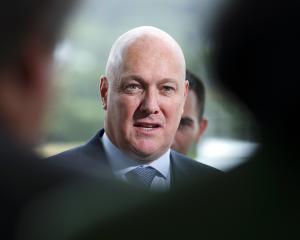In an announcement that came out of the blue for most people, the Labour Party and the Green Party yesterday confirmed they have signed a Memorandum of Understanding, working together with the aim of ousting the National-led Government.
Some commentators clearly anticipated the announcement, yet there will be those who have wondered why it has been so long in coming. One of the reasons was as simple as personality.
But with Labour leader David Cunliffe and former Green co-leader Russel Norman out of the mix, there is apparently more willingness to engage on what the two parties hold in common: philosophies and policies.
The two parties have collaborated before, but not to this extent - and not mid-election cycle. The Greens have always fiercely guarded their independence, but their popularity slipped after its peak.
For the proud and long-established Labour Party, with previous terms in government, it is a huge and somewhat shocking admission that it simply can no longer make it on its own.
Whether the two parties, together, actually provide a viable opposition to the seemingly untouchable Government is still debatable. Prime Minister John Key will take it all in his stride.
But only recently, and for the first time during his leadership, his popularity took a sizeable hit in the polls. The housing crisis is taking its toll, and a blase approach to wealth, courtesy of the Panama Papers, has not helped him with those on the wrong side of the inequality divide.
Then of course there is New Zealand First leader Winston Peters, the wild card. Which way might he blow? Would the Maori Party realign with its more natural left-wing partners? Will the alliance risk isolating some Labour voters or swing voters who view the Greens as a fringe party of radicals?
There will be implications at national and local government level. There are already Green Party-aligned candidates who will contest spots on the Dunedin City Council at this year's local body elections.
Labour mooted standing candidates under the party banner, but backtracked. What will it mean for Dunedin at the general election? In North Dunedin there has always been something of an informal understanding about the Greens/Labour vote.
The agreement could safeguard the less stable Dunedin South seat for Labour, though.
What is certain is that - from a position of rock bottom - Labour has upped the ante and the campaigning has begun in earnest. Already, the lead-up to the general election has become much more interesting.
The public can expect the promises of more joint announcements, joint policies, possibly a joint campaign. Whether New Zealanders will believe the promises of "a new and better government'', "a better future'' and "a strong and stable alternative'', however, will be revealed at the ballot box next year.
Long may it last
The Labour/Greens announcement came only a day after Dunedin was lauding its new "all of city'' approach by various organisations, which has apparently begun paying dividends.
Cynics would most likely think collaboration is hardly rocket science, and why on earth weren't the council and the city's major players doing just that previously?
The fact is many organisations will have worked together in some fashion and much has been achieved at various stages through informal avenues. But, an ad hoc approach is not the most efficient way to get things done, both when times are tough and when business is booming and there are growing pains.
It makes sense to adopt an official co-ordinated approach to boost the success of individual organisations and the city as a whole. It is pleasing then to see that some of the seeds of this new approach are bearing fruit. Long may that last.












